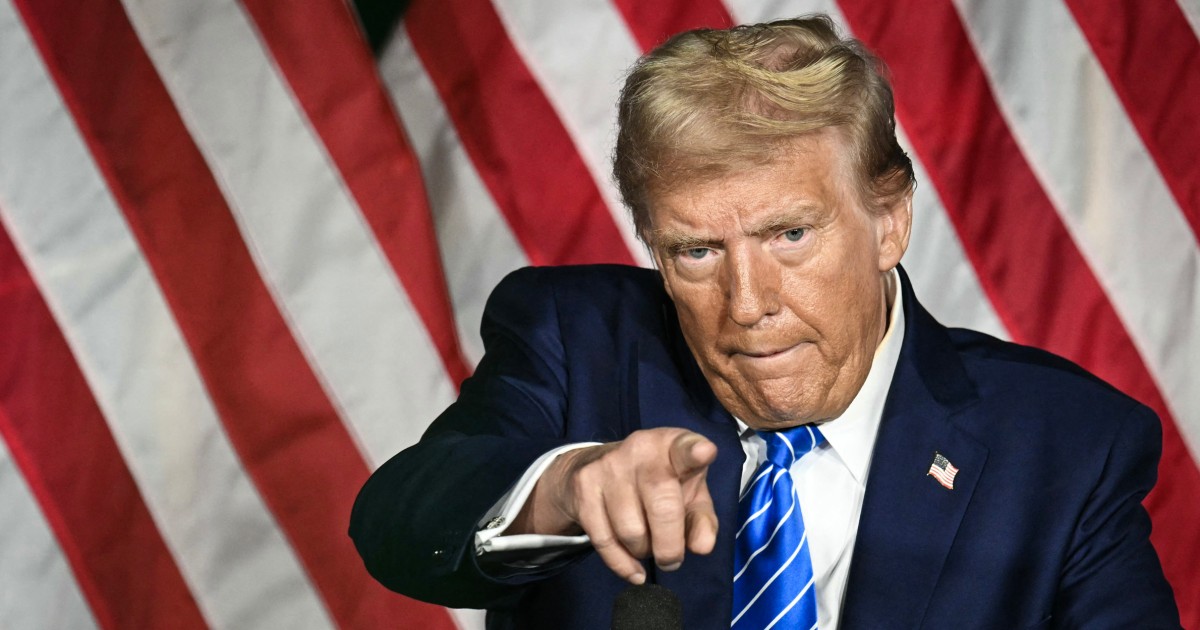Gambling
Opinion | Want to bet $1 million that Trump will win? Now you can

Mitt Romney was fighting mad. He was running for the 2012 Republican presidential nomination, and Texas Gov. Rick Perry had just claimed at a debate that Romney supported a federal individual health insurance mandate like the one in the Affordable Care Act.
“You’re simply wrong,” he told Perry on the Iowa stage. Then, Romney added in a flourish, he was so confident that he would bet Perry $10,000 on it.
Perry declined. “I’m not in the bettin’ business,” he said, “but OK.”
The moment was widely considered a gaffe that made Romney look like a country club swell getting into an argument with Rodney Dangerfield in a 1980s comedy. But maybe Romney was just ahead of his time, because a dozen years later it looks like politics is a bettin’ business after all.
This week, the U.S. Court of Appeals for the District of Columbia declined to block a lower court decision that allowed the prediction exchange market Kalshi to offer bets on whether Democrats or Republicans will control the House and the Senate after the November elections.
Gambling has already taken over American lives. Americans spend an estimated $100 billion a year on lotteries, as tickets are now sold in all but five states.
The Commodity Futures Trading Commission — the government agency that typically regulates things like hog futures and those credit default swaps you might remember from the movie “The Big Short” — had tried to ban so-called Congressional Control Contracts, warning that they could hurt the integrity of elections or even the mere perception of them, which is pretty much the same thing.
The commission warned that such contracts might create a monetary incentive for voters to support a certain candidate or to give bettors an incentive to spread misinformation about the other side. But the courts found those fears too speculative and decided that the agency had overstepped its authority.
That doesn’t mean the rest of us have to be happy about this.
Gambling has already taken over American lives. Americans spend an estimated $100 billion a year on lotteries, as tickets are now sold in all but five states. More than 1 in 3 Americans say they have placed a bet on a professional sporting event, as sports gambling is now legal in 38 states, plus D.C. And more states are allowing people to make bets from their smart phone or computer, which only increases the risk of a gambling addiction.
It’s even seeping into everyday interactions. Adult customers at the popular Dave & Buster’s chain will soon be able to place $5 bets with each other on games of Skee-Ball.
So what’s the harm in allowing gambling to seep into politics, too? After all, what is a campaign donation if not a bet on your favorite candidate? And isn’t a CEO maxing out to both candidates just a way of hedging against a potential loss? If Americans can already bet on the Rotten Tomatoes score for the latest Venom movie or whether a hurricane will hit Orlando this year, why not elections?
Federal judges may not like speculation, but let’s talk through a few possibilities of how this could go wrong if it continues to expand. (Right now, Kalshi is only contemplating bets over control of Congress, not on individual candidates, but the recent history of gambling shows it tends to expand once it gets a foothold.)
- Insider trading: A campaign official learns before the public does that a candidate has had a politically damaging affair. They make a big bet against their boss and then leak the news. Or if you like really cynical hypotheticals, the person the candidate had the affair with makes the bet and then comes forward.
- Bad betting: Your uncle, who has already lost friends and family over his increasingly weird political beliefs, bets his retirement savings on a “can’t lose” candidate that his fringe internet bubble has convinced him will win in a landslide.
- Skewed public perception: A rich donor goes all-in, placing bets designed to make it look like a certain candidate has better odds than they do, thus raising doubts among supporters when that candidate loses, hurting confidence in election integrity.
- Profiting off attacks: A shadowy group hoping to influence the outcome of an election with online misinformation — or even with a terrorist attack — places bets designed to make money off of their interference at the same time.
Personally, I find prediction markets like PredictIt and the Iowa Electronic Markets to be interesting — to a point. But they limit the number of bettors and the amount they can wager, allowing those platforms to function more as an academic exercise.
Kalshi is different. As the Appeals Court noted, it places no cap on the number of bettors and would allow individuals or entities to invest up to $100 million on a contract.
As with Romney’s wager, it’s the amount that gives me pause. (He really should have just bet Perry 10 bucks.) It’s one thing to set up a prediction market to see how committed people are to their prognostications, but when you start talking about millions of dollars in unlimited wagers, it’s not hard to see some of these risks becoming more plausible.
Americans already broadly favor banning members of Congress from using insider knowledge to game the stock market. We can see the harms right now that have come from rich donors spending freely on campaigns, whether that’s relatives getting sucked into political bubbles or sketchy operators trying to undermine public confidence in elections.
Perhaps these bad outcomes from allowing political betting aren’t going to happen. But are we willing to bet our democracy on it?








